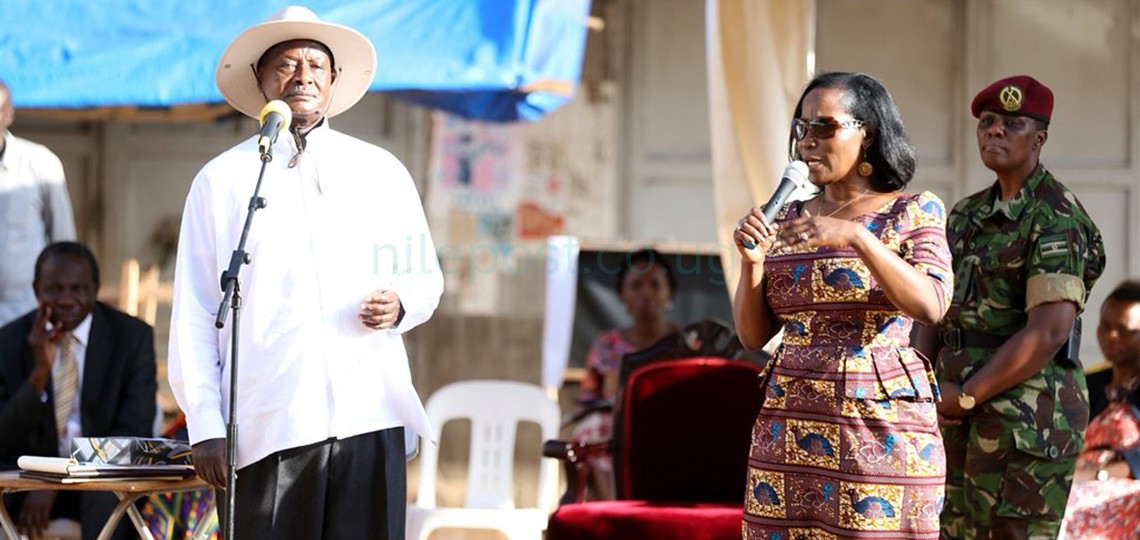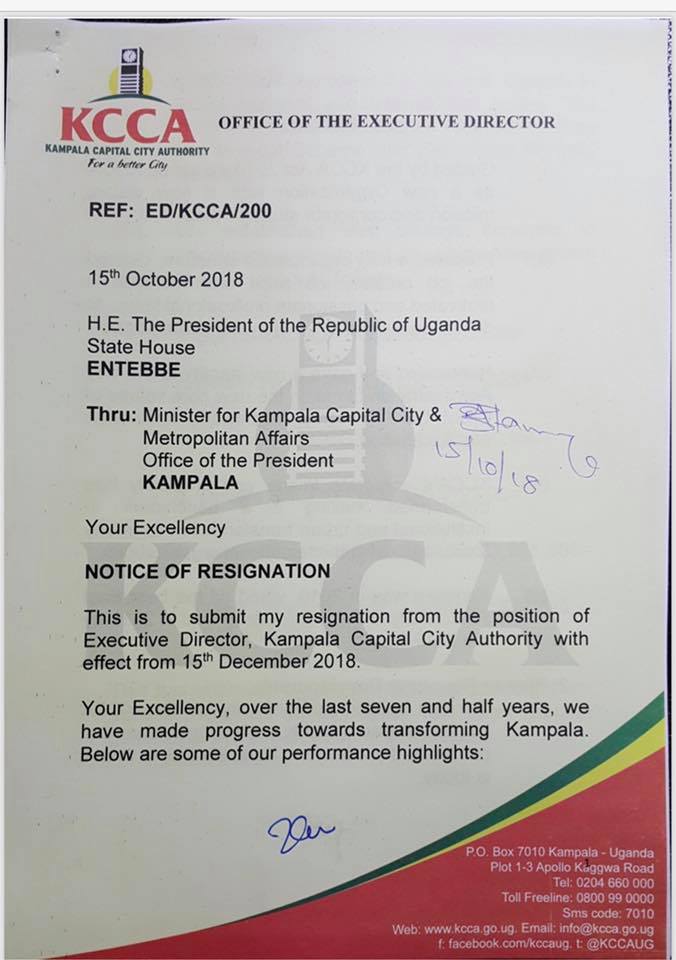
KAMPALA – At his last campaign rally in Kampala, ahead of the 2016 presidential election, candidate Yoweri Museveni did the unthinkable. He apologized to residents of downtown Kampala about KCCA executive director Jennifer Musisi’s harsh way of delivering the much-needed change in the city.
The majority of the crowd at the rally, who included the small-scale traders, hawkers, boda-boda riders, matatu drivers, the idle and unemployed are the ones that had particularly felt the negative brunt of KCCA’s innovations of bringing order into the city.
To many analysts, this was shocking given that it was the same Museveni that had previously praised Ms Musisi for transforming Kampala.
Immediately after the 2016 election, President Museveni, in his first major media interview, he still blamed Musisi for his loss in the city. In Kampala, of the 1176 polling stations out of 1338 that had declared results, Dr. Kizza Besigye garnered 300,751 while Museveni got 142,181 votes, a margin of 158,570 votes. Similarly, in Wakiso, Besigye got 263,657 while Museveni scored 162,555, a difference of 101,102 votes.

To many critics, that was the end of Musisi. Kampala Woman MP Nabilah Naggayi Sempala says the real Musisi resigned in 2016 after Museveni’s criticism.
According to Nabilah, these remarks by the President crushed Musisi’s spirit. “She was never the same ever since. She wasn’t the Musisi we used to know.”
Musisi at this moment was shattered that she reluctantly accepted to renew her contract for another three years. Sources added that the President started receiving briefs by his confidants, among them his brother, Gen Salim Saleh, that Ms. Musisi was no longer transparent in the management of city funds.
Asked how this came to be, sources added that some ‘mafias’ within government were angry that Ms. Musisi was keeping them out of tenders for the management of many city projects and then used this to “spoil” her image before the President.
The fallout between the duo was also accelerated when the President started to trust Ms. Kamya in the management of city affairs and control of the budgeting process. Ms. Musisi and Ms. Kamya then began to publicly disagree on the decision by the latter to table the 2015 KCCA (Amendment) Bill before parliament without consulting her. On top of clipping the powers and influence of the mayor, and the executive director, the bill also reasserts the minister as the most dominant person in the city.
In a letter that was leaked to the media, Musisi wondered how Kamya could table such a bill before parliament without hearing from the executive director’s team.
Ms Kamya also hit back, accusing Ms Musisi of being a populist and poor manager.
“Musisi has become a populist; you discuss something and then she rushes to leak it to the media. We meet every Monday; us the two ministers, the undersecretary, Musisi and her team. There is always an opportunity for her to ask anything she wants but when you bypass those channels and instead run to do your work from the media, then you’ve become a politician,” Kamya said on CBS FM morning talk show, Parliament Yaffe, which is moderated by Meddie Nsereko in May last year.
Ms Musisi’s work, since the fallout with the President, has been hampered by limited funding.
It should be remembered that Mr Museveni’s decision to suspend the collection of the monthly Shs120,000 fees on taxis badly affected the city authority’s budget. Since its establishment in 2012, KCCA had enjoyed a budget increment. One of the major areas where it heavily invested is infrastructure. According to the KCCA budget estimates for the Financial Year (FY) 2017/2018, the authority suffered a Shs200b budget shortfall after the ministry of Finance approved Shs410.1b budget ceiling against their proposed Shs600b. KCCA received Shs563b for the FY 2016/17. This left KCCA grappling with many funding gaps.
In August this year, the evidence of the fallout between Ms Musisi and Mr Museveni came at a function to graduate over 4,000 students under the Presidential Initiative on skilling the girl child at Kololo ceremonial grounds. At the function, President Museveni ordered Ms Musisi to ensure there is no more dust and mud in Uganda’s capital.

“It seems Musisi is sleeping on her job because there is a lot of dust and mud in Kampala. A good example is Clock Tower where mud collects whenever it rains and when the water dries, the mud remains on the road and it becomes dust.”
Museveni said that at Kololo, some parts were well paved whereas others have greet belts and tarmac, urging Jennifer Musisi to emulate the same for Uganda’s capital to get rid of dust and mud.
“I have said it here on the microphone. We should not get embarrassed having dust in the city. Stop sleeping and work on the dust and mud,” he said.
Therefore, on Monday, October 15, when Musisi announced that she was leaving her position in which she has served for the last seven years, many analysts were not shocked.
In fact in her 21-page letter to the appointing authority, President Museveni, Ms. Musisi also cited the challenges of failing to reconcile competing political interests the KCCA strategic plans and policies. She also highlighted the inadequate funding by government and as such KCCA was unable to meet the government and public expectations of city development and service delivery. Musisi also said KCCA is also inadequately staffed and poorly remunerated. She also said KCCA has not received the necessary political support to transform the city through improvement plans. In her letter, Musisi said she has severally highlighted these challenges that have been partly addressed but largely remain unresolved.




